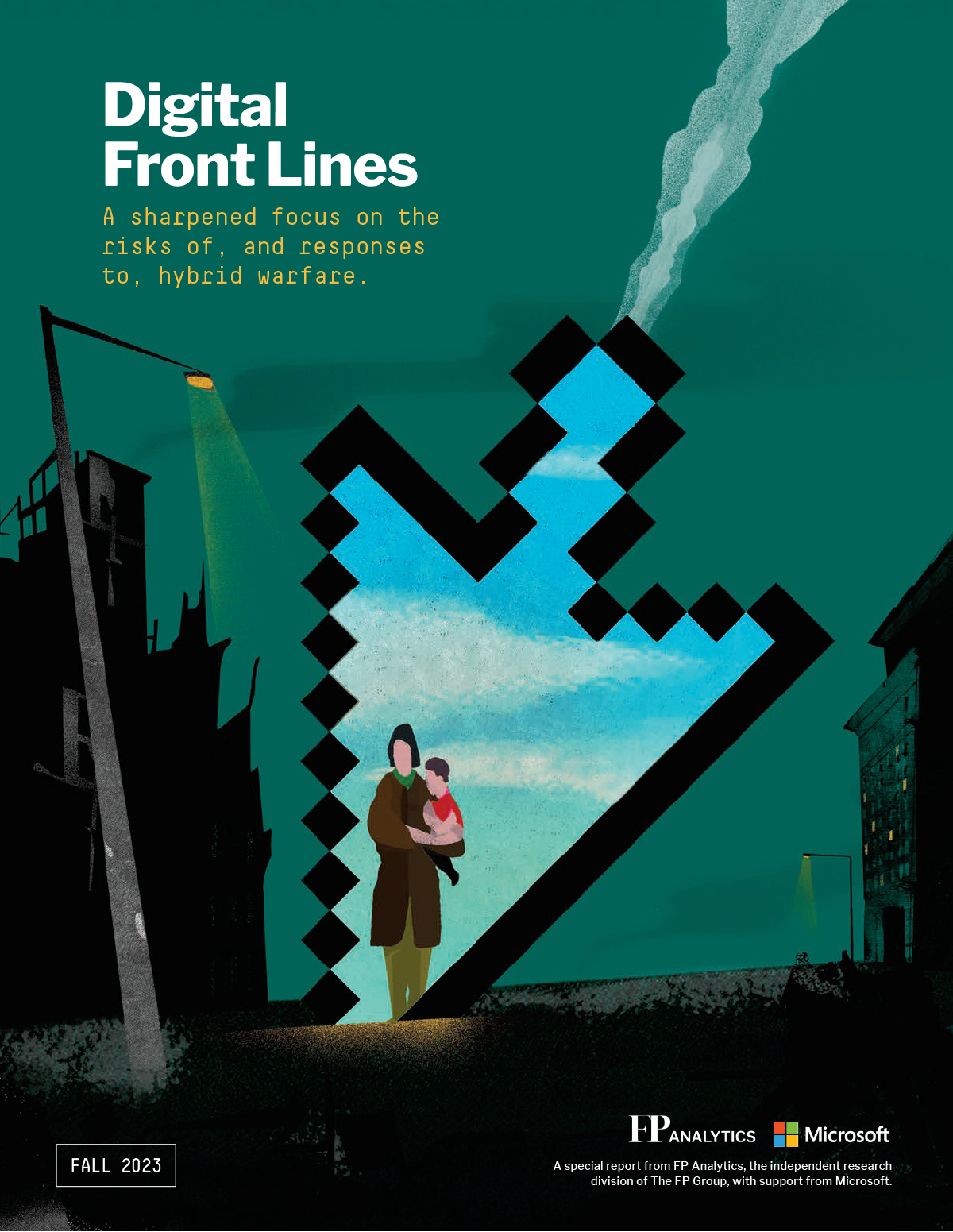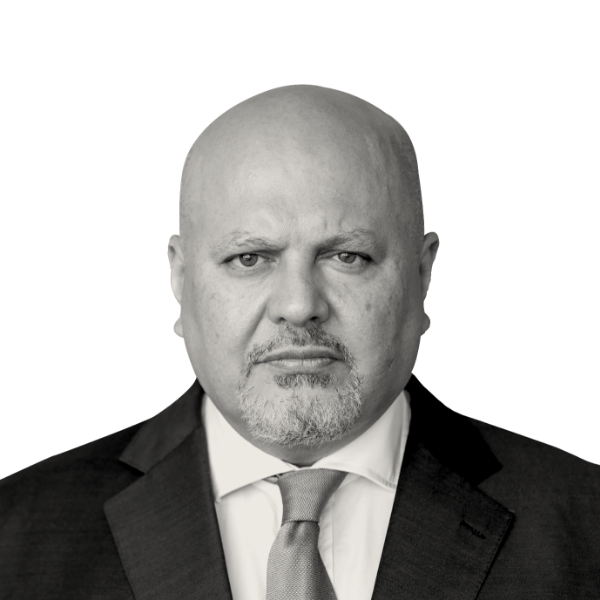Speaking to FP Analytics, U.S. Under Secretary of State for Arms Control and International Security Bonnie Jenkins discussed how emerging and disruptive technologies require new approaches to address potential threats to international security. The following transcript has been edited for clarity and length.
Listen to the full Q+A with Ambassador Bonnie Jenkins
FP Analytics (FPA): What are the main challenges to security and deterrence in chemical, biological, radiological, and nuclear defense with regard to cyberattacks?
Ambassador Bonnie Jenkins (BJ): The main issue right now is trying to gain a sense of how cyberattacks affect planning and execution in the military. We have seen the increased use of cyberattacks as well as cyber expertise in the past few years. We need to continue to understand how we can address cyber situations that impact our national security. To that end, we have set up entities within the U.S. government that focus on our defensive and offensive capabilities.
FPA: How do you think advancements in artificial intelligence (AI) complicate these dynamics?
BJ: First of all, there are a lot of positives to AI. There are a lot of things that can be done in terms of arms control, and there may be ways we can use AI to improve the verification of treaties, the verification of many types of risk-reduction efforts. But, of course, there are also things we need to worry about. How do we make sure AI is being used responsibly? AI, like other emerging technologies, is developing so fast. In many ways, governments are behind the curve. There are so many entities that are involved: not just government, obviously, and not just the military, but industry and academia.
We don’t know what AI or any emerging technology is going to look like a year from now, so we need to have some way to responsibly address this technology, particularly in the military sense. When we talk about space, for example, the U.S. has tried to get countries to agree not to do direct-ascent anti-satellite weapons tests, which the Russians did a couple of years ago and left a lot of debris in the atmosphere. And, fortunately, we were able to, at the U.N. General Assembly, get 155 countries to agree to that.
We took this concept of responsible behavior in emerging technologies, and in February 2023, I was able to announce at a summit in the Netherlands the Political Declaration on the Responsible Military Use of Artificial Intelligence and Autonomy. What the declaration sets forth are a number of principles for countries to adopt in terms of AI and the military, such as ethical issues about developing technologies.
We are also looking at making sure a human is involved in any nuclear decision-making. We are working with countries in all regions of the world to develop guardrails and determine how to be responsible in these areas. But it is going to be important not just for government but for industry to also be involved.
FPA: What is the role of the private sector in safeguarding weapons systems and related infrastructure?
BJ: It is important to recognize what the private sector can provide us. They’re out there working on these technologies, developing them in many parts of the world. These are opportunities for us in the government to really see the cutting-edge work that’s going on, involve them in these discussions, and learn from their expertise. They may already be doing things we want to do, so there’s no reason for us to duplicate that work. We do need to stay abreast of who is involved and what they are working on. How can we work hand in hand with them on these emerging technology issues? Unlike many of the ways we’ve done traditional arms control in the past, this is an area where we really do have to be working with industry, because so much is happening outside government and in academia, where they’re doing a lot of exploration on emerging technologies.
FPA: Can you explain how arms control now is different from how it was in the past?
BJ: For many years, we were trying to promote predictability in the international system when it comes to chemical, biological, nuclear weapons. And we did so by negotiating and concluding a number of treaties—the Nuclear Non-Proliferation Treaty, Biological Weapons Convention, Chemical Weapons Convention, the New START Treaty that we have with Russia, etc. These are all ways that, under international law, regulate, disarm, and promote the nonproliferation of these weapons. Emerging technologies have provided a different requirement in how we address what can create instability in the international system. And some of these actions do not necessarily fit the traditional arms control way of doing things.
New challenges posed by emerging technologies demand another way of looking at how we promote predictability in an international system. So there is the traditional way we’ve done arms control, with legally binding treaties that go to the Senate for advice and consent. But there are also things we can do to develop risk reduction, crisis management, confidence-building measures and norms—ways in which we work with other countries to take activities that provide some predictability and reduce miscalculation to ensure we don’t do things that will create instability in the international system.
FPA: Are there any promising public-private partnerships that can inform efforts going forward?
BJ: The Arms Control, Verification, and Compliance Bureau is actually working with some academic institutions—for example, the University of Maryland—to get a better understanding of what they are doing on emerging technologies and ways the government can collaborate. We also have something called a Verification Fund where we provide funding to entities that have innovative ideas regarding verification and the use of these technologies.
FPA: What might the structure and content of expanded or adjusted agreements tailored to current cyber realities look like?
BJ: We don’t really know what all the threats might be because we are still learning about the opportunities and challenges that stem from emerging technologies. We have to come to the table discussing these issues with many unknowns but still needing to consider how to approach these new areas. We also have many actors in these fields. We have industry, research institutes, and academia, in addition to many government actors. This unique situation will lead to a different approach in a new landscape.
FPA: What insights can be derived from Russian threats to nuclear zones in Ukraine—most notably the Zaporizhzhia Nuclear Power Station—and how can these insights be applied to safeguarding nuclear facilities worldwide?
BJ: We need to have more ways of looking at how we approach the safety and security of these kind of plants. One of the things that the International Atomic Energy Agency did, led by Director General Rafael Grossi, was to develop principles that countries should agree to with regard to safety and security in times of conflict. And the thought process behind these principles is that you’re talking about nuclear safety, nuclear security issues, things that if abused could lead to significant damage to countries. We recognize that we need to think about nuclear safety in times of war and nuclear security in times of war. And while we assumed that there’s a recognition among countries that taking over a nuclear power plant and bombing areas around the plant are not good things to do, maybe we need to develop more principles in terms of parameters for dealing with these kinds of situations and conflicts. Hence the principles.
FPA: What are your top priorities for increasing cybersecurity around chemical, biological, radiological, and nuclear defense?
BJ: I think we have to find ways to constantly stay ahead of countries or other entities that want to use cyber in ways that can be even more devastating in terms of weapons of mass destruction. Cyber can be used in a way that brings great challenges in terms of financial risk and personal information. However, when you’re talking about cyber in terms of nuclear, chemical, or biological weapons, the potential risks to the international community are even more grave. So, I think we need to keep an eye on that, make sure we can stay ahead of it all, and always try to guess how others can be using cyber, which while very challenging, is important.
Ambassador Bonnie Denise Jenkins, Ph.D., is the Under Secretary for Arms Control and International Security at the U.S. Department of State. She previously served as Special Presidential Envoy and Coordinator for Threat Reduction Programs, legal advisor to the former U.S. Arms Control and Disarmament Agency, Counsel on the 9/11 Commission, and General Counsel to the U.S. Commission to Assess the Organization of the Federal Government to Combat the Proliferation of Weapons of Mass Destruction. A retired U.S. Naval Reserve Officer, she also worked for the Ford Foundation and the Rand Corporation and founded the nonprofits Organizations in Solidarity and Women of Color Advancing Peace, Security, and Conflict Transformation.







